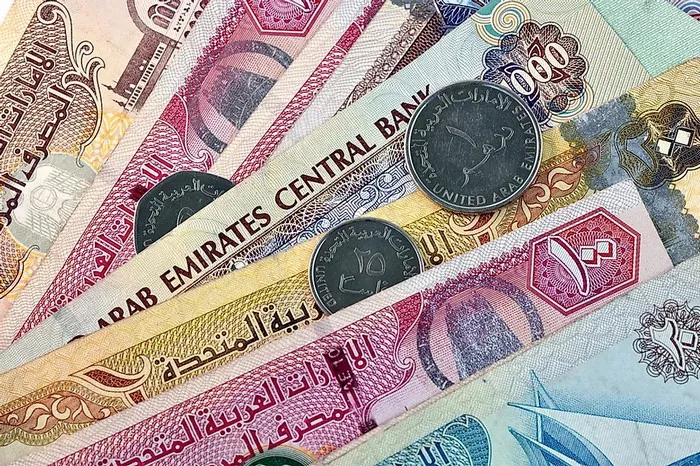Foreign currency investing involves buying and holding currencies of countries other than your own with the aim of profiting from fluctuations in exchange rates.
Currency Pairs: Currencies are traded in pairs, where one currency is exchanged for another at an agreed-upon exchange rate. The value of a currency pair is determined by the exchange rate between the two currencies.
Ways to Invest in Foreign Currency
Forex (Foreign Exchange) Market: The forex market is the largest financial market globally, where currencies are traded 24 hours a day, five days a week. It offers opportunities for investors to speculate on currency movements.
Currency ETFs (Exchange-Traded Funds): Currency ETFs track the performance of specific currencies or baskets of currencies, providing investors with exposure to foreign currencies through the convenience of exchange-traded funds.
Currency Futures and Options: Derivative contracts such as futures and options allow investors to speculate on the future direction of currency exchange rates. These contracts provide flexibility and leverage in currency trading.
Physical Currency: Holding physical cash in different currencies is another way to invest in foreign currency, although it may involve storage and security considerations.
Factors to Consider Before Investing
Risk and Volatility: Foreign currency markets can be highly volatile, with exchange rates influenced by economic indicators, political events, and geopolitical tensions. Investors should be aware of the risks associated with currency trading.
Leverage: Forex trading often involves leverage, which can amplify both gains and losses. Investors should use leverage cautiously and understand its implications on their investments.
Liquidity: Consider the liquidity of the currency pair you intend to invest in, as some currencies may have lower trading volumes and wider bid-ask spreads, affecting transaction costs.
Regulatory Considerations: Understand the regulatory environment in your jurisdiction, as forex trading may be subject to specific regulations and oversight. Choose reputable brokers regulated by competent authorities.
Pros and Cons of Foreign Currency Investing
Pros:
Diversification: Investing in foreign currencies can provide diversification benefits to a portfolio, reducing overall risk exposure.
Potential for Profit: Currency markets offer opportunities for profit through speculation on exchange rate movements, especially for investors with a good understanding of market dynamics.
Hedge Against Currency Risk: For investors with international exposure, holding foreign currencies can serve as a hedge against currency risk, mitigating losses from adverse exchange rate movements.
Cons:
High Risk: Currency markets can be volatile, and sudden price movements can result in significant losses. Investors should be prepared for market fluctuations and potential downside risks.
Complexity: Forex trading requires a good understanding of economic indicators, geopolitical events, and technical analysis. It can be challenging for inexperienced investors to navigate the complexities of currency markets.
Lack of Intrinsic Value: Unlike stocks or bonds, currencies do not generate earnings or pay dividends, making them inherently speculative investments. Investors should be cautious and avoid overexposure to currency risk.
Strategies for Foreign Currency Investing
Carry Trade: The carry trade involves borrowing in a low-interest-rate currency and investing in a higher-yielding currency to profit from interest rate differentials. This strategy exploits the differences in interest rates between currencies.
Trend Following: Trend-following strategies involve identifying trends in currency prices and trading in the direction of the trend. Investors aim to capitalize on momentum and trend reversals in the forex market.
Hedging: Hedging involves using currency derivatives to offset currency risk in international investments. It allows investors to protect against adverse exchange rate movements and minimize losses in foreign currency exposure.
Tax Implications
Capital Gains Tax: Profits from foreign currency trading may be subject to capital gains tax in some jurisdictions. Investors should consult tax professionals to understand their tax obligations related to currency trading.
Income Tax: Income generated from currency trading may be subject to income tax, depending on the jurisdiction and the nature of the trading activity. Tax treatment may vary for different types of investors, such as individuals and corporations.
Practical Considerations
Choosing a Broker: Selecting a reputable forex broker is crucial for successful currency trading. Consider factors such as competitive spreads, reliable execution, robust trading platforms, and regulatory compliance when choosing a broker.
Risk Management: Implement risk management techniques such as setting stop-loss orders, position sizing, and diversification to manage potential losses in currency trading. Risk management is essential for preserving capital and achieving long-term investment success.
Education and Research: Continuously educate yourself about forex markets and conduct thorough research before making investment decisions. Stay informed about economic indicators, geopolitical events, and market trends that may impact currency prices.
Conclusion
In conclusion, foreign currency investing offers opportunities for diversification, profit potential, and currency risk hedging. However, it also entails risks such as volatility, complexity, and lack of intrinsic value. Investors should carefully assess their risk tolerance, conduct thorough research, and adopt sound investment strategies when engaging in foreign currency investing. By understanding the benefits, risks, and considerations associated with currency trading, investors can make informed decisions to achieve their financial goals.


